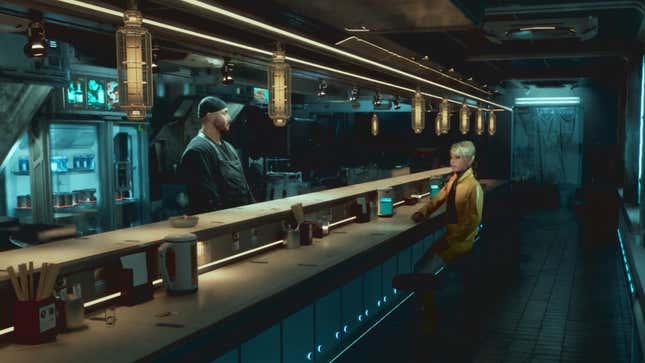
Think of your favorite video game character. Picture them in your head, remember their stories and the actors’ performances that made them stick with you long after you put the controller down. Maybe you’re thinking of Astarion from Baldur’s Gate 3, whose actor Neil Newbon recently won the Best Performance award at the 2023 Game Awards. Or maybe your mind went to your favorite iteration of Link from The Legend of Zelda franchise, who has stayed with you over the years with each new game in the series, despite never speaking.
Remember that everything you love about that character was created by a team of writers, artists, and actors who combined their immense talents to bring that hero, villain, or companion to life. Nvidia, the company responsible for many of the graphics cards in high-end PCs, announced an AI-powered NPC generator called Omniverse Avatar Cloud Engine alongside AI tech company Convai last year. It attempts to emulate the same writing, acting, and animation that all those talented people create to make those characters impactful. There’s a key distinction, however: It sucks.
The Verge posted a transcript of a conversation between the site’s senior editor, Sean Hollister, and two NPCs from a playable demo at CES 2024. The demo Nvidia and Convai were showing allowed the user to speak with characters using their own voice, with the AI characters reacting to what was said in real time. One character was called Jin, and was meant to be an employee of a ramen restaurant, and the other was Nova, a patron sitting at the bar. Hollister notes that the tech still has a long way to go, saying “voices, facial expressions, and body language” all weren’t up to snuff compared to what hand-crafted work can capture, but still came away from the demonstration feeling like the tech appearing in video games is “inevitable.” In theory, this would allow developers to create game characters without having to pen scripts and record performances. The AI would simply generate responses to whatever players say. This follows growing concern from voice actors following SAG-AFTRA’s deal with tech company Replica Studios allowing it to create AI replicas of voice actors, much to the chagrin of those whose voices are on the line.
As Hollister describes it in the piece, Jin and Nova are “effectively generative AI chatbots.” Neither character seems to have much to think about beyond the walls of the ramen shop. They can conceptualize the cyberpunk city they’re supposed to live in by mentioning heists, corporate fuckery, and other petty crimes, but most of this just feels like they’re pulling from a word bank. There’s nothing here that resembles prose, emotion, or anything else that makes a character endearing or human-like. AI promises some kind of procedural, endless possibility that could, in theory, make a character feel more alive and reactive than your average NPC, but if there’s no actual dialogue written, they’re just an algorithm trying to trick us into believing the world is real.
A lot of work seems to have gone into making the simulation feel real. Convai Head of Product Nyla Worker explained to The Verge that each NPC has some backend programming meant to give them a central ethos, including a character description, knowledge bank, and personality traits like if they’re extroverted or introverted. So these AI-powered NPCs essentially have a digital character sheet they draw from so they don’t break off from their role. But again, that’s just an AI being trained to emulate a specific archetype so it can cosplay being a person. The characters you love made the impact they did because someone created them, not because an algorithm put them in front of you to bark a generated backstory. Writers, animators, and actors imbue them with a sense of realness, as if they have actual identities and their own hopes and dreams.
All of this follows thousands of layoffs across the video game industry in just the first 19 days of 2024. This kind of callous treatment of workers and their labor is only allowed to persist as executives refuse to take pay cuts and look for outs like Nvidia’s tech to keep pumping out video games without having to pay people to craft them.